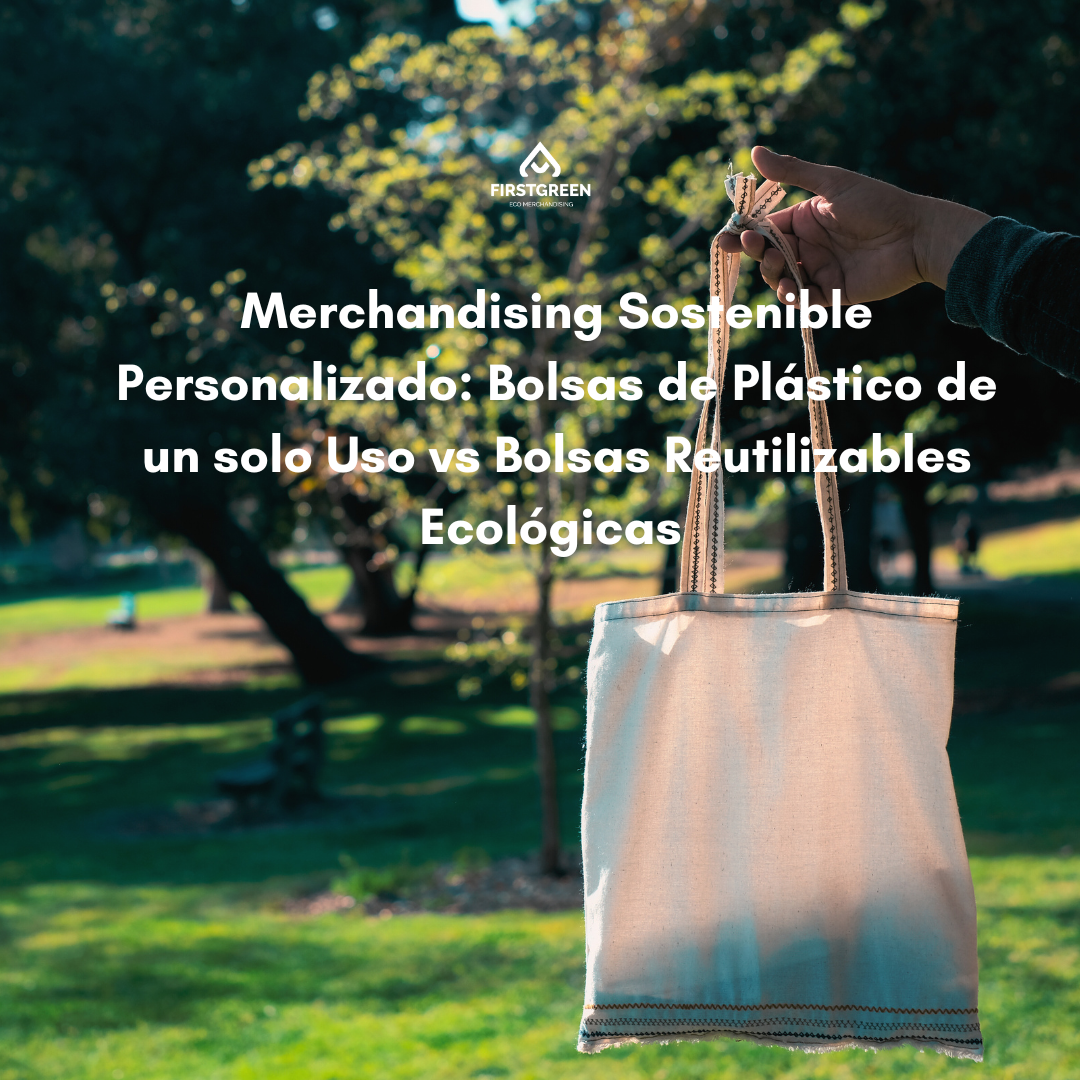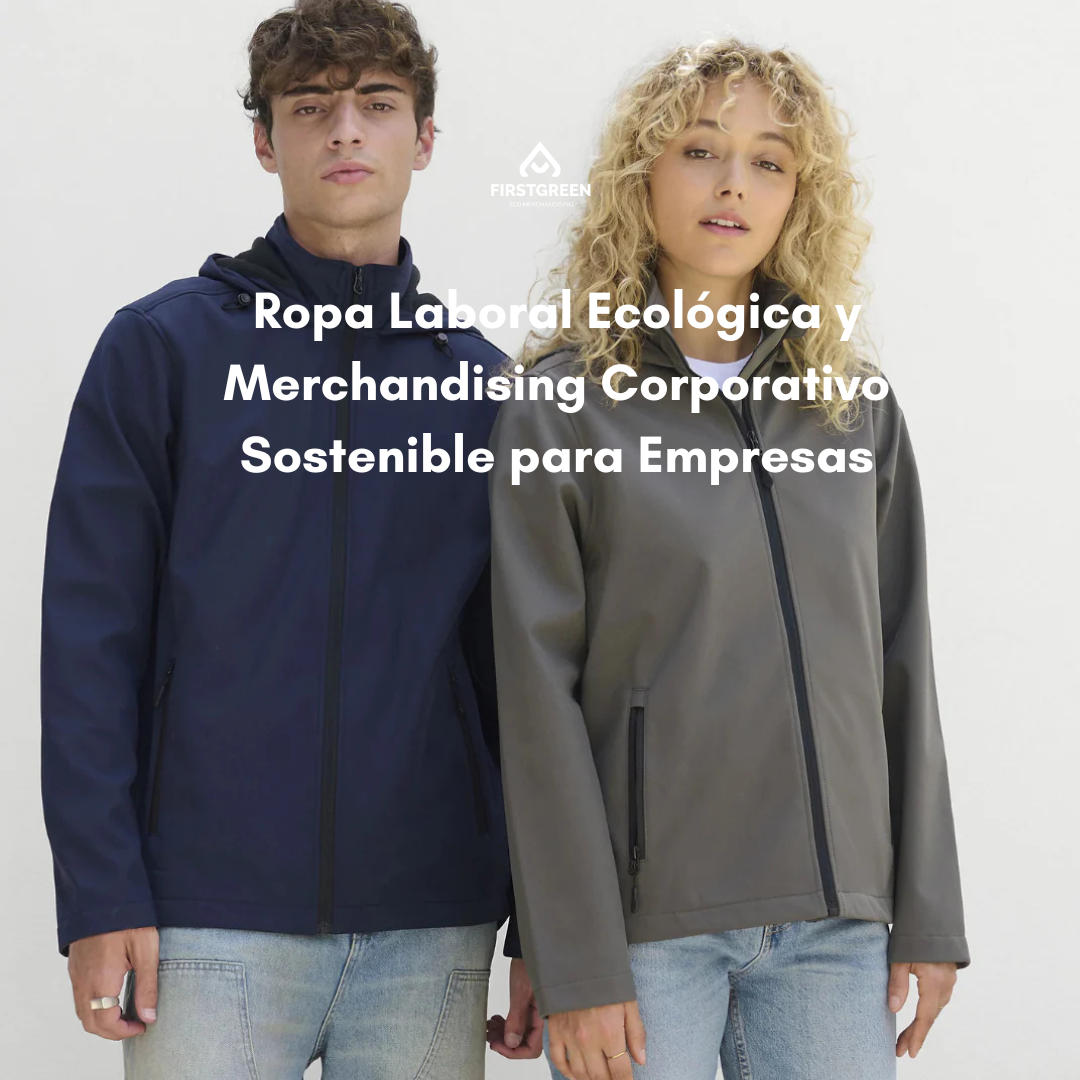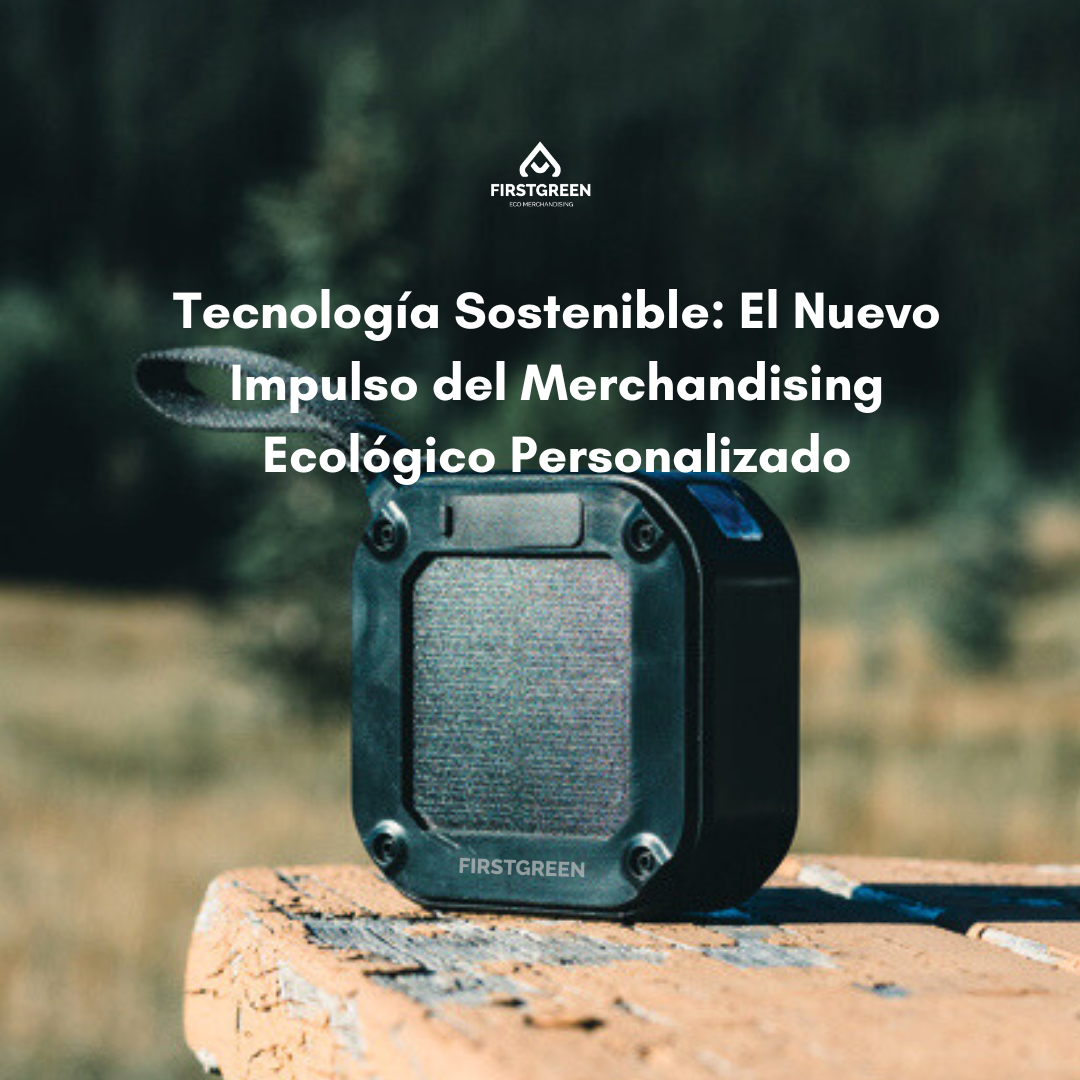There are many measures from administrative institutions and companies committed to environmental awareness that encourage us to reduce the consumption of single-use plastic. Currently, there is an effort among large and small companies to replace single-use plastic bags with reusable bags made of eco-friendly materials. Choosing between using commercial bags as part of conventional cheap merchandising for celebrations and events or choosing the ecological reusable bags proposed by sustainable merchandising has become a crucial measure for the planet.
On the Firstgreen blog (online store for ecological customization), we explore a little more about sustainability and waste reduction, we will explore the carbon footprint measurement of each option to understand why reusable bags are an excellent option as CO2Gifts .
Carbon Footprint Impact of Single-Use Plastic Bags.
It is still difficult to eliminate single-use plastic bags offered to us in shops and supermarkets and in the packaging of promotional gifts. But as we all know, their production and use have a significant impact on the environment.
Production: The production of a single-use plastic bag generates approximately 0.5 to 1.0 kg of CO2 per bag. This value includes oil extraction, refining and the manufacturing process.
Use and End of Life: The disposable and single-use nature of this item means that its life cycle is very short. This material ends up in landfills or as plastic pollution in the environment, where it can take hundreds of years to decompose.
Eco-friendly Merchandising: Carbon Footprint of Reusable Shopping Bags
Reusing eco-friendly corporate merchandising is the most significant key to environmental impact. The purpose for which reusable bags are designed to be used often makes them a more sustainable option than single-use items in the long term.
Common Materials: When we talk about reusable eco-friendly bags , we are not talking about a single material, each material, during its life cycle, has its own carbon footprint, the calculation of greenhouse emissions from recycled materials (such as cotton, polyester, and RPET (recycled polyethylene terephthalate)) is not the same as the carbon footprint and sustainability generated by the manufacture of reusable foldable bags from organic and biodegradable materials such as wood, bamboo, jute or hemp, but the key factor is the number of times the personalized shopping bags are used.
Production and Emissions: The production of reusable organic cotton bags and eco-friendly rpet custom bags have a similar initial carbon footprint of approximately 1.5 to 3 kg CO2e. but are made from recycled materials, (from recycling cotton fabric scraps and single-use plastic bottles), reducing the need for new resources and pollution in oceans and landfills.
Reuse: The key to minimizing the carbon footprint of eco-friendly promotional bags is to use them repeatedly. It is estimated that sustainable cloth bags can be reused about 500 times. Taking this data into account, the carbon footprint generated annually for the production of a single-use plastic bag would be between 250 to 500 kg of CO2, compared to 1.5 to 3 kg of CO2e for reusable bags.
In addition, in the field of corporate gifts, an ecological visual impact and sustainable advertising that is visible for much longer is achieved.
Personalized Eco-Friendly Bags Most Used in Corporate Merchandising
Biodegradable reusable bags are excellent promotional corporate gifts (CO2Gifts) for companies committed to sustainability. The benefits that eco-friendly materials provide for offsetting the carbon footprint of products are many:
Reusable Organic Cotton Bags: Known for their durability and sustainability. Organic cotton optimizes all the resources of its production, from the diversification of crops to the end of the process. Throughout the process, it manages to reduce greenhouse gas emissions by 46%, waste accumulation by 26%, irrigation water by 91% and primary energy consumption by 62% compared to conventional cotton.
100% Organic Cotton Foldable Eco Bag 120 g/m2 with Long Handles and ECO Badge to Personalize Nepax - 9KG Resistance and GREEN_Label A Rating
Sustainable Reusable RPET Mesh Bag with Front Pocket to Personalize with Special ECO Badge for Fruit and Veggie RPET and GREEN Label B rating

Reusable Jute Bags: This eco-friendly merchandising is highly valued for its natural and biodegradable aesthetics. Jute is a 100% recyclable and biodegradable natural resource, the cultivation of one hectare consumes 15 tons of carbon dioxide and releases 11 tons of oxygen. It is used in the fight against climate change to prevent soil erosion and reforestation of forests.
Eco-friendly jute shopping or beach bag in bright colours with cotton handles to personalise Aura and GREEN Label B rating.
Keys to Sustainability and Reducing the Carbon Footprint.
Carbon footprint reduction for both options focuses on efficiency and reuse.
Single-use plastic bags: To reduce their environmental impact, it is essential to recycle them properly and reduce their use in general. Awareness campaigns for recycling and the banning of their use in many places help reduce their impact on the sustainability of the planet.
Reusable bags; The key to their environmental impact is reuse. The more times you use eco-friendly reusable bags, the more you offset your carbon footprint per use. Choose durable materials and make sure you use them as many times as possible, taking advantage of the versatility of these eco-friendly promotional products that can be used as a daily shopping bag, as a corporate gift for leisure and free time, and even for packaging eco-friendly welcome kits.
In conclusion, we can say that reusing reusable bags as many times as possible is essential to reduce the carbon footprint. Reusable cloth bags, fair trade bags made of non-woven fabric, rpet, recycled cotton, jute, canvas, organic cotton, are the sustainable fibers that not only help reduce CO2 emissions, but are also quality products with sustainability and recycling certifications used as powerful eco-branding tools in excellent CO2Gifts.





